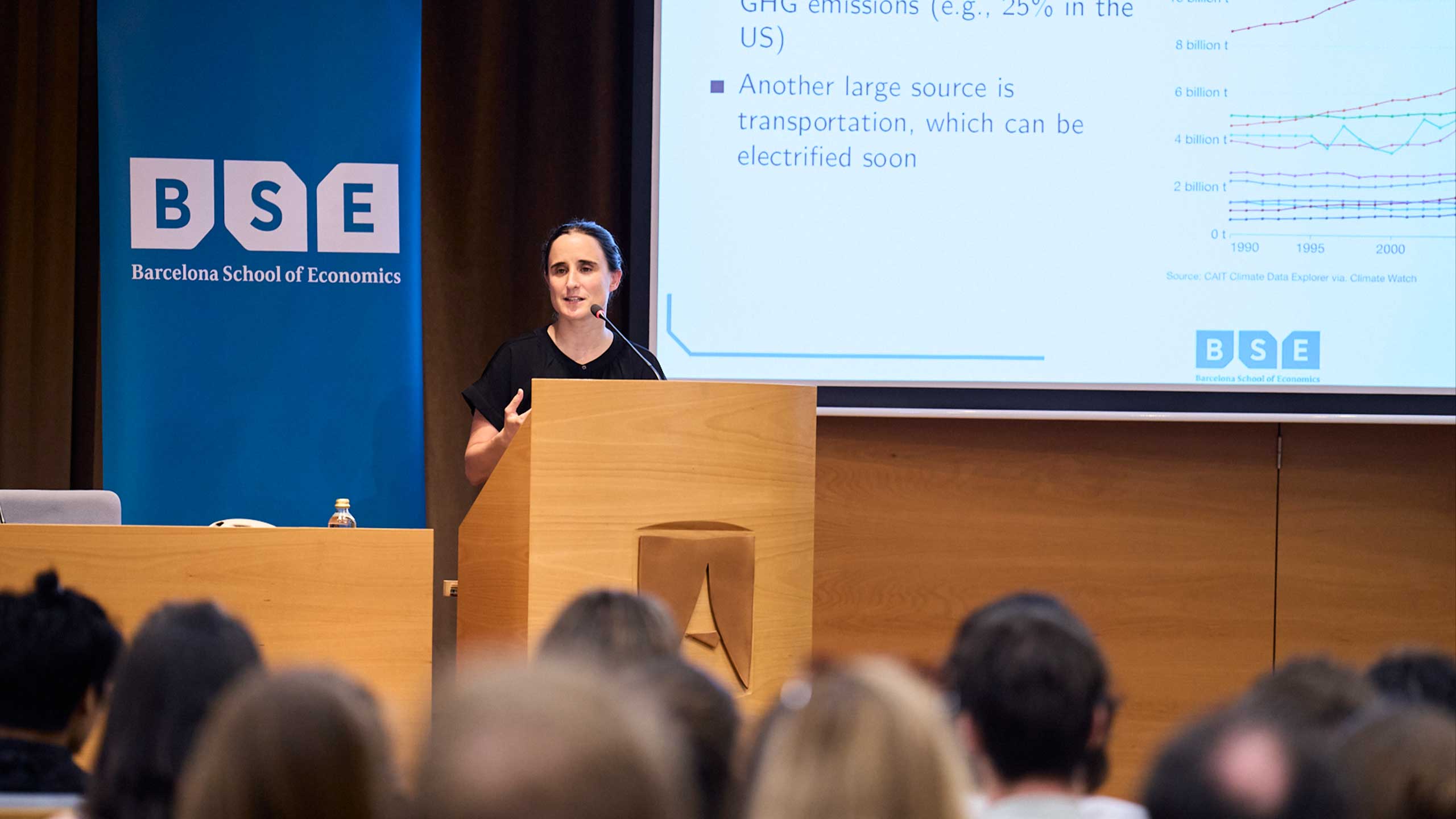
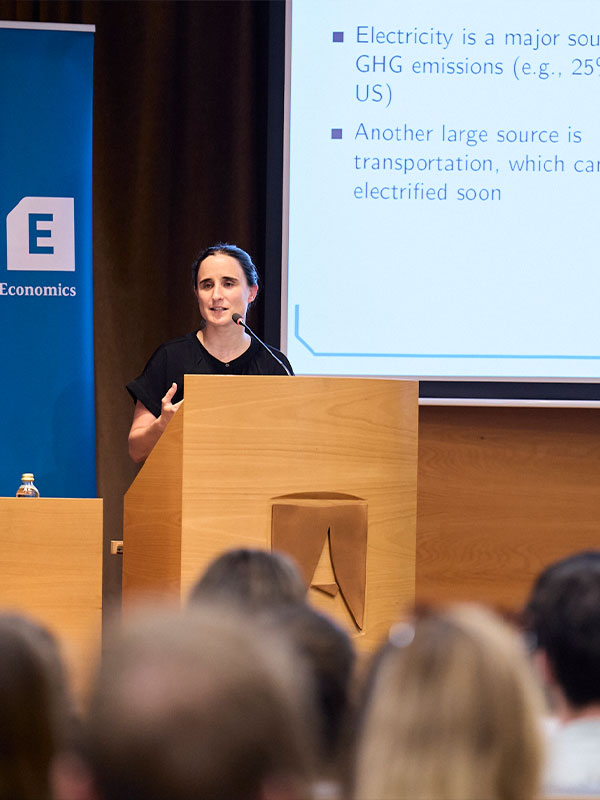
Economics of Energy, Climate Change, and Sustainability Program
Learn about the economic challenges that the energy transition and climate change entail.
(Sep–Jul)
Bellaterra (UAB) and
Ciutadella (UPF)
About this Master’s program
There is a growing need to understand the technological transformations and economic challenges that the energy transition and climate change entail.
How can we understand the economic and ecological forces? What can we do to improve outcomes?
In the BSE Master’s program in Economics of Energy, Climate Change, and Sustainability, you will acquire an advanced understanding of the rapidly changing energy sector, learn how economic theory and data tools can be used to understand their functioning and trends, and develop the qualifications that employers are looking for on their teams.
Program Structure
Students from this Master’s program will be able to choose from different elective courses that are also available in the Competition, Regulation, and Markets Program and the Economics of Public Policy Program. These three programs share the same fundamental basic courses that will provide you with an in-depth knowledge of how economic policy and markets work. At the same time, each program provides its own specialization courses that will make you an expert in one of the specific fields.
How our program works
- In Term 1, the Master’s program will present the foundations of theoretical and quantitative frameworks to understand energy markets and climate policy.
- Then in Term 2, you will apply these concepts to a variety of evolving situations, from the regulation and green transition in energy markets to the accounting of climate risks and costs in the banking sector.
- During Terms 2 and 3, you will have the opportunity to go deeper into advanced topics, such as climate change and migrations, advanced quantitative methods for energy modeling, and advanced Data Science topics.
You will also complete a master project, which will be supervised in regular meetings with an advisor. The project will allow you to put your new knowledge into practice and improve your writing and expository skills.
Is our program right for you?
The Economics of Energy, Climate Change, and Sustainability Program is ideal for students and early professionals in Economics, Business, Data Science, Engineering and other STEM backgrounds who want to focus their careers on energy and climate change policy. At BSE, we can provide the theoretical frameworks and quantitative tools to directly inform the energy transition at government agencies, central banks, think tanks, and companies. A growing number of companies, even if not related to the energy sector, are incorporating technical staff to provide in-house guidance on the uncertainty arising from the energy transition and climate change, and our students will help fill that gap.
Our program has a quantitative focus that can be particularly exciting to students and professionals who enjoy data analysis and coding. Regardless of your coding background, you will complete the Master’s with a full range of computational tools and resources for in-depth analysis of energy and climate data.
Discover what makes this program truly exceptional
Study with experts in Energy: The Director of this program is also the Director of Climate Change at the Center for Economic Policy Research.
Study with leading researchers and professionals: Learn the latest developments in energy from researchers and professionals working in the private and public sectors.
Quantitative focus: This program focuses on data analysis and coding for in-depth analysis of energy and climate data.
Understand the rapidly changing energy sector: Learn how economic theory and data tools can be used to understand their functioning and trends.
Meet the Program Directors
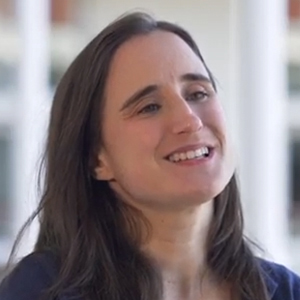
Mar Reguant
PhD, MIT

Albert Banal-Estañol
PhD, Universitat Autònoma de Barcelona
There is a growing need to understand the technological transformations and economic challenges that the energy transition and climate change entail.
How can we understand the economic and ecological forces? What can we do to improve outcomes?
In the BSE Master’s program in Economics of Energy, Climate Change, and Sustainability, you will acquire an advanced understanding of the rapidly changing energy sector, learn how economic theory and data tools can be used to understand their functioning and trends, and develop the qualifications that employers are looking for on their teams.
Program Structure
Students from this Master’s program will be able to choose from different elective courses that are also available in the Competition, Regulation, and Markets Program and the Economics of Public Policy Program. These three programs share the same fundamental basic courses that will provide you with an in-depth knowledge of how economic policy and markets work. At the same time, each program provides its own specialization courses that will make you an expert in one of the specific fields.
How our program works
- In Term 1, the Master’s program will present the foundations of theoretical and quantitative frameworks to understand energy markets and climate policy.
- Then in Term 2, you will apply these concepts to a variety of evolving situations, from the regulation and green transition in energy markets to the accounting of climate risks and costs in the banking sector.
- During Terms 2 and 3, you will have the opportunity to go deeper into advanced topics, such as climate change and migrations, advanced quantitative methods for energy modeling, and advanced Data Science topics.
You will also complete a master project, which will be supervised in regular meetings with an advisor. The project will allow you to put your new knowledge into practice and improve your writing and expository skills.
Is our program right for you?
The Economics of Energy, Climate Change, and Sustainability Program is ideal for students and early professionals in Economics, Business, Data Science, Engineering and other STEM backgrounds who want to focus their careers on energy and climate change policy. At BSE, we can provide the theoretical frameworks and quantitative tools to directly inform the energy transition at government agencies, central banks, think tanks, and companies. A growing number of companies, even if not related to the energy sector, are incorporating technical staff to provide in-house guidance on the uncertainty arising from the energy transition and climate change, and our students will help fill that gap.
Our program has a quantitative focus that can be particularly exciting to students and professionals who enjoy data analysis and coding. Regardless of your coding background, you will complete the Master’s with a full range of computational tools and resources for in-depth analysis of energy and climate data.
Ready to make a difference? This program is designed for
Students who are passionate about the rapidly changing energy sector. Here’s why it is perfect for you:
- You studied Economics or Business and have a strong interest in energy and sustainability economics.
- You want to build your knowledge of economics in energy markets and their regulation.
- You are a researcher looking to learn more about recent economic tools.
- You are an aspiring PhD student looking for a rigorous Master’s in energy economics.
What skills and knowledge will you learn?
Learn the skills needed to understand the energy sector, and data tools to understand economic theory.
Learn how energy markets are organized
Build short- and long-run economic models
Evaluate the cost/benefits
Learn about economic concepts
Professors
BSE Professors are renowned researchers who are published in leading Economics Journals.

Albert Banal-Estañol
PhD, Universitat Autònoma de Barcelona

Javier Gómez Biscarri
PhD, UCLA

Rosa Ferrer
PhD, Vanderbilt University

Jaume Garcia-Villar
PhD, London School of Economics

Andre Groeger
PhD, Goethe University Frankfurt

David Hémous
PhD Harvard University

Joan Llull
PhD, CEMFI

Humberto Llavador
PhD, University of California-Davis

Gerard Llobet
PhD, University of Rochester

Martí Mestieri Ferrer
PhD, Massachusetts Institute of Technology

Morten Olsen
PhD, IESE Business School

Fernando Payró Chew
PhD, Boston University

Mar Reguant
PhD, MIT

Pere Riera
PhD, Universitat Autònoma de Barcelona

André B.M. Souza
PhD, UPF

Thomas Stoerk
PhD, Universitat Pompeu Fabra
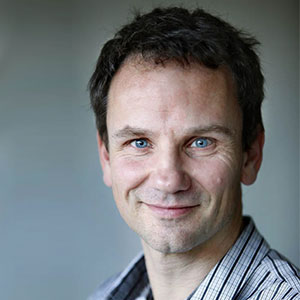
Frank Verboven
PhD, University of Toronto
Program Schedule
In September, students will have the opportunity to take a brush-up course in Mathematics and Statistics, and Stata. These courses are not mandatory but highly recommended to assure a smooth start.
In the beginning of the first term, students will also have to take brush-up courses in Coding in R and Coding in Python. These two courses are mandatory in order to take Foundations of Data Science in Term 1.
Term 1 (September-December)
Term 2 (January - March)
Term 3 (April - June)
| Course title | Credits | Professor(s) |
|---|---|---|
| Mandatory | ||
| Master Project | 6 | Mar Reguant |
| Competition and Regulation in Energy Markets | 3 | Albert Banal-Estañol |
| Economic Geography and Climate Change | 3 | Andre Groeger |
| Policy Lessons* | 3 | Thomas Stoerk |
| Electives (Choose from 0 to 3 ECTS) | ||
| Economics of Market Regulation | 3 | Gerard Llobet |
| Social Economics | 3 | Giacomo De Giorgi, Ada Ferrer-i-Carbonell |
Master’s Projects
Examples of Master's Projects
Class of 2024:
- Optimizing Emissions Reduction: Green Hydrogen Subsidies vs. Grid Interconnection in Texas by Fernando Araya, Marcus Bockhold and Nazarena Marano Suffern.
Class of 2023:
- The Competitiveness of Battery Storage in the Electricity Market by Daniel Gray and Matias Rojas.
- Public and Private Investment in BEV Charging Infrastructure and Spillover Effects by Susanna Recusani and Karianne Reinertsen.
Master’s degree awarded by UAB and UPF
Upon successful completion of the BSE Economics of Energy, Climate Change, and Sustainability Program, students will receive a Master’s Degree in Specialized Economics Analysis awarded jointly with Universitat Autònoma de Barcelona (UAB) and Universitat Pompeu Fabra (UPF).


All Barcelona School of Economics Master’s degrees have been recognized by the Catalan and Spanish Education authorities within the framework of the Bologna Process (in Spanish, “Master Universitario o Master Oficial”).
Placement Rate, 2024 Cohort
Within 6 months of graduation:
- Job titles: Sustainability Analyst, Associate, Research Assistant, Consultant, Renewable Energy Division Internship
- Industries: International Organizations & Non Profit (25%), Research & Academic Institutions (13%), Government & Authorities (13%)
- Companies: OECD, CEPA, Boston Consulting Group (BCG), IAE (Institute for Economic Analysis), RENOVA
- Higher Education: 43% go on to a PhD or further education.
Work Internationally
Cities with the most alumni





Testimonials

Eugenio Parigi
I was looking for a program that combined rigorous academic training with a strong focus on real-world challenges like the climate one, and the Energy Economics Master’s at BSE was the perfect fit. The program’s blend of economics, policy, and technical modules offered me a comprehensive understanding of energy markets, sustainable practices, and emerging technologies. The opportunity to learn from industry experts and collaborate with a diverse, international cohort truly enriched my experience and prepared me to tackle the global climate challenge.
Why study a Master’s at BSE
Ranked among the top institutions for economics research in the world by RePEc.
Nobel Laureates and prestigious economists develop BSE Master’s.
BSE Master’s are taught by well-renowned researchers and faculty.
Study in the heart of vibrant Barcelona.
Admissions and Entry Requirements
At BSE, we look for excellence. Key elements of a strong application are a high GPA, a sound statement of purpose, and standout reference letters. Strong knowledge of Economics and good quantitative skills are also recommended.
Requirements:
- An undergraduate/bachelor/grado/laurea, or equivalent degree from an accredited college or university (for Bologna degrees, a minimum of 180 ECTS are required).
- University diploma in Economics, Finance, Engineering, Mathematics, Statistics, or Business Administration. Students with academic backgrounds in other subjects will be considered.
- An advanced level of English language skills: TOEFL score of 90 or above; IELTS Academic Test score of 6.5 or above.
Candidates will also be evaluated on the following admission criteria:
- Outstanding academic record.
- Quantitative skills.
- Reference letters.
Fees and funding
Tuition Fee
Student Fee: €18,000
Tuition Funding and Scholarships
Funding opportunities at BSE are awarded on the basis of academic excellence. All applicants admitted to a BSE Master’s program have demonstrated strong potential to succeed in a demanding and rigorous academic environment. In recognition of exceptional achievement, the most competitive candidates may also receive financial support to help cover tuition costs, fully or partially.
The available funding may include:
- Tuition waivers of 25%, 50%, 75%, or 100%
- A small number of fully funded scholarships, which may also include a living stipend, depending on the award
Financial offers are extended only to applicants with outstanding academic profiles. To be considered for the full range of funding options, candidates should complete their application by January 15. Applications submitted after that date will be considered for any remaining funds.
FAQ
Below you will find our most frequently asked questions but do not hesitate to contact the BSE Admissions Team to learn more about our Master’s programs.
What are the most common student profiles in the Economics of Energy, Climate Change, and Sustainability Program?
What are the most common student profiles in the Economics of Energy, Climate Change, and Sustainability Program?
25 students from 15 countries (92% international) in 2024-2025
Most represented countries this year:
- United Kingdom, United States (4 students each)
- Germany (3)
- Chile, Spain (2)
Most common academic backgrounds:
- Economics (17)
- Business Administration (3)
- Engineering (2)
Years of work experience:
- 0-1 years (6)
- 1-2 years (4)
- 2-3 years (4)
- 3 years and above (11)
Who hires Economics of Energy, Climate Change and Sustainability Program graduates?
Graduates of the Economics of Energy, Climate Change, and Sustainability Program Program secure roles across sectors such as international organizations and non profit, government and authorities, research and academic institutions, and other industries. Learn more about the specific positions, companies, and locations of these placements (cohorts of 2021, 2022 and 2023) in this document.
Can I apply to different Master’s programs?
You can apply to three different programs for the same academic year.
Can I apply for tuition funding?
We will automatically assess whether students meet the eligibility criteria for tuition waivers, and we will also promote eligible candidates for scholarships provided by external funders.
What level of English is expected for this Master’s?
An advanced level of English is required: TOEFL score of 90 or above; IELTS Academic Test score of 6.5 or above; Duolingo English Test 115 points
Should I take the GRE General Test before I apply?
The GRE General Test highly recommended, but optional
Can I enter another BSE Master's directly from this program?
Students who successfully complete the Economics of Energy, Climate Change, and Sustainability Program are eligible for direct admission to the following programs, if they stay for a second consecutive year:
Master’s Degree in Data Science:
OR
Master’s Degree in Economics and Finance:
A 20% discount will be applied on the second program’s tuition fees. All BSE Alumni are eligible for this discount at any time. Learn more about taking a second BSE Master’s degree.
Related Master’s Programs
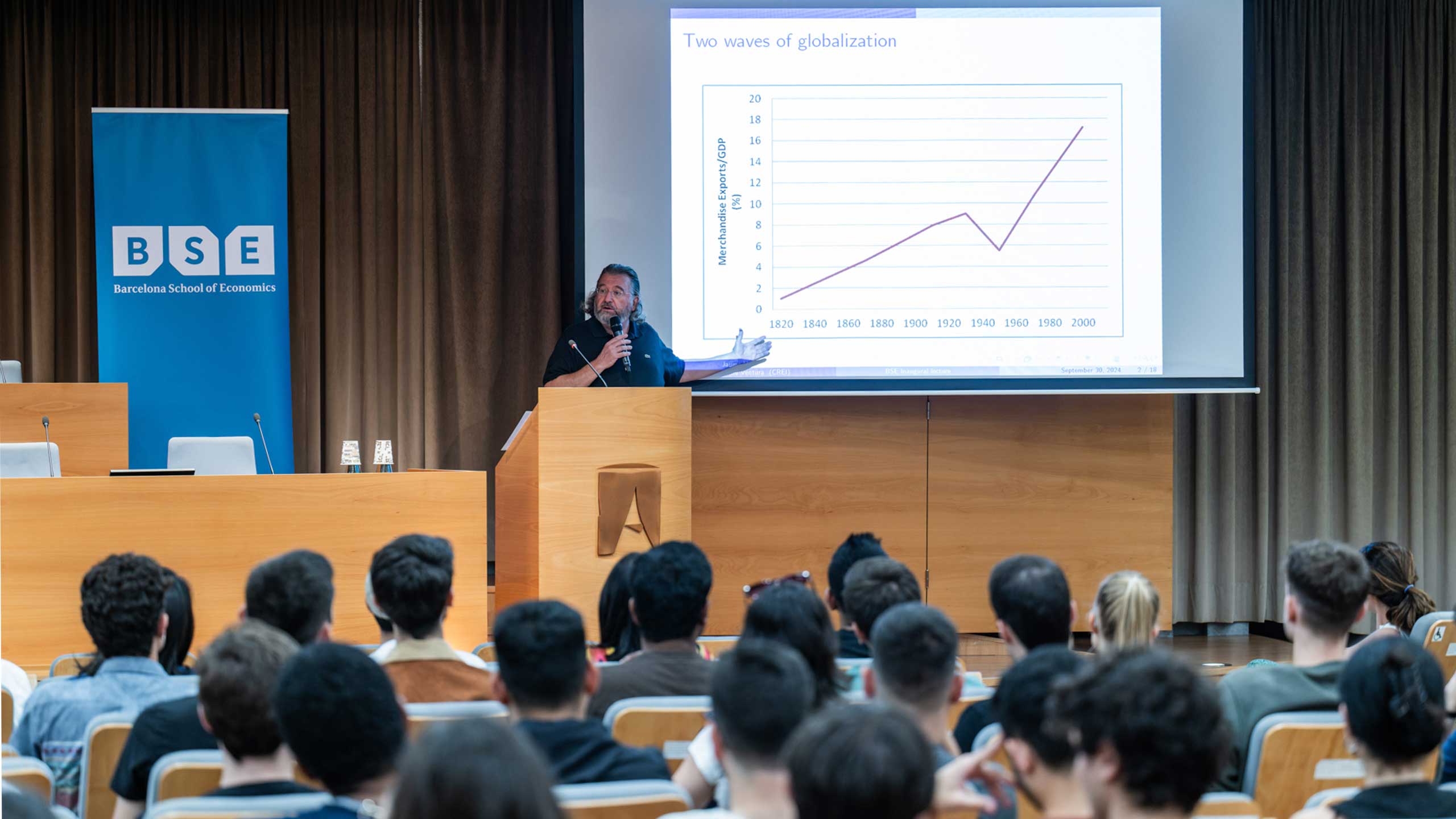
International Trade, Finance, and Development Program

Macroeconomic Policy and Financial Markets Program

Economics of Public Policy Program
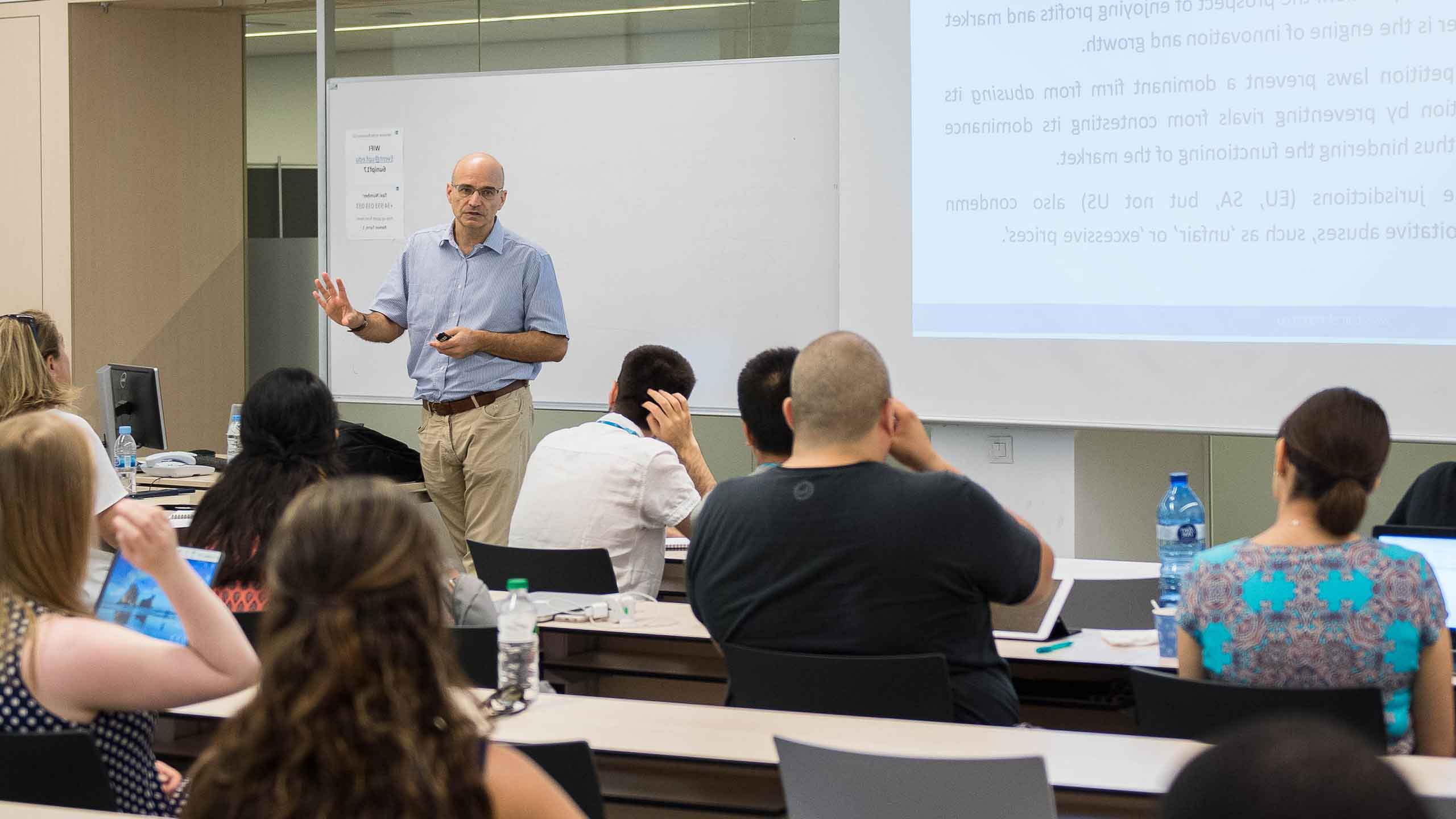
Competition, Regulation, and Markets Program
Related Research Publications
See allEconomics. All rights reserved.







